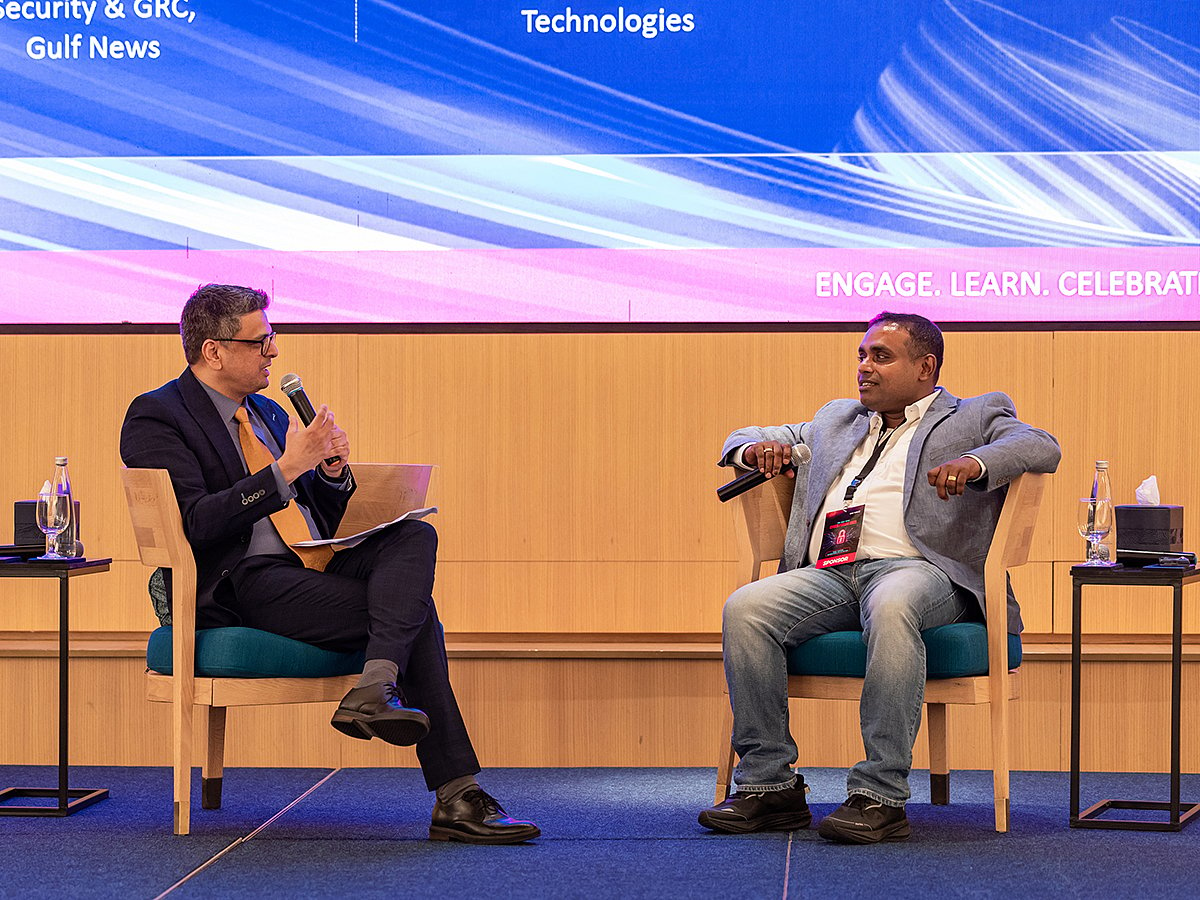Speed and Automation: How AI is transforming cybersecurity strategies
Jishant Karunakaran says AI & automation are turning cybersecurity into proactive defense

As cyberattacks grow faster, more automated, and more coordinated, defending a modern digital organization demands more than human effort alone. That was the focus of a compelling fireside chat at the Gulf News Cyber Forum 2025, where Jishant Karunakaran, CEO of Mindfire Technologies, sat down with Anoop Kumar, Head of Information Security & GRC at Gulf News, to discuss how AI-driven defense is reshaping the cybersecurity playbook.
Karunakaran explained that the turning point came years ago during cloud migrations, when enterprises realized that traditional on-premise security philosophies no longer applied. With identity, data, and infrastructure now operating beyond physical walls, companies needed visibility, automation, and continuous control. Security first is a default mindset. “Governance used to be about compliance,” he recalled. “Nobody was looking at the effectiveness of the platform.”
Today, the scale of the threat has exploded. A typical UAE enterprise with 500–1,000 users may face 10,000 or more attempted attacks every day, he said, many filtered before they ever reach analysts. But the real challenge is inside the SOC: millions of alerts, conflicting logs, and too few skilled professionals to interpret them quickly enough. The result, Karunakaran noted, is human fatigue and delayed response.
His team’s answer was to build structured automation powered by AI - decision engines capable of handling 90–95% of routine incidents, from isolating endpoints to responding to credential attacks. Instead of dozens of manual steps, well-designed workflows allow machines to act in seconds. Analysts remain in the loop, but they focus on exceptions, not repetitive triage. “With AI and automation, we can manage 20 million alerts without breaking people,” Karunakaran said.
But technology alone is not the victory. Processes, governance frameworks, and continuous training keep responses accountable and transparent. Every action is logged, justified, and aligned to defined controls. Quarterly reviews and certification paths help analysts grow rather than burn out. It’s a human-machine partnership where both get stronger over time.
Looking ahead, Karunakaran warned that quantum computing will compress the threat timeline even further, and organizations must begin preparing now by securing assets, strengthening cryptographic readiness, and building adaptive SOC models.
“We’re entering an era where speed wins,” Kumar concluded. “And the winners will be those who stay curious, not just compliant.”
Sign up for the Daily Briefing
Get the latest news and updates straight to your inbox
Network Links
GN StoreDownload our app
© Al Nisr Publishing LLC 2026. All rights reserved.